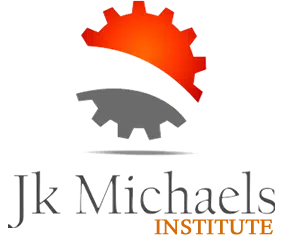Oil and Gas Project management training at JK Michaels will equip delegates with the tools and techniques to deliver a successful oil and gas project. The use of projects and project management in the oil and gas industry is becoming more and more critical for all kinds of organizations. Businesses regularly use project management to accomplish unique outcomes under the constraints of resources, and implementing project management techniques is an essential means of achieving an organization’s strategy. This course addresses the essential nature of managing general projects in the oil and gas industry and does not limit its focus to one type of project, such as construction or R&D projects.
Included in the course is a comprehensive discussion of the knowledge and skills required for effective project management as prescribed by the two preeminent organizations dedicated to advancing the science of project management and the professional development of project managers: APM (Association for Project Management) and PMI (Project Management Institute). The course combines instructor-led lectures and practical class exercises, many of which are specific to the oil and gas industry. The instructor also facilitates class discussion sessions. The purpose of these sessions is to allow a forum where participants can share their experiences related to their involvement in projects. The course is specifically designed to force participants to use knowledge and skills learned during the course by applying those skills in team-based case study class exercises.
The course uses the project life cycle as the organizational guideline. The contents will cover the project management process, including project initiation, planning, implementation and termination. Participants will study the characteristics of project and project management, how to define a project, how to organize a project, how to plan a project, how to implement, trace and control a project, and how to terminate and post-evaluate a project.
This JK Michaels Institute training course will cover current innovations and advancements in project management methods, tools, and strategies to guarantee project success. Analysing current project delivery systems and procedures, risk and issue management, stakeholder and communication management, planning and scheduling strategies, project finance and economics, including creating a commercially viable and successful business case and project plan focusing on oil and gas projects.
Anyone working in the oil and gas sector knows that a complex project environment presents unique problems.
Through decision-making models for commercial departments, FEED, planning, and delivery, this engaging training equips learners with the advanced abilities needed to implement business goals efficiently.
This course teaches students how to generally manage projects in the energy sector, including oil and gas, offshore and onshore projects, refinery, petrochemical, and power generation projects. The course’s primary focus is to aid students who want to earn a PMP certificate by matching them with PMP guides.
The course will cover the most recent and cutting-edge methodologies and techniques in large-scale oil and gas projects. In the end, students will be familiar with all the strategies and acronyms employed in energy projects.
Participants in this interactive Oil & Gas management course leave with the knowledge and abilities necessary to complete projects, from the decision-making processes utilised by business development and commercial departments to FEED and planning & delivery. Whether they are involved in project selection, management, or leading elements of oil and gas projects, this thorough training will help anyone in the business to make better project decisions.
CERTIFICATION: The course leads to a University of Atlanta Master’s certificate in Oil and Gas Project Management
The course topics include:
- basic concepts of project and project management
- project selection
- project definition
- project organization structure
- team building
- communication and conflict management
- project planning methods and techniques
- resource allocation
- project monitoring and control
- project termination
The course includes applications of PMI’s Project Management Body of Knowledge text (PMBOK® Guide – Fourth Edition) and a case practice application for the oil and gas industry.
Prerequisites
Basic Understanding of the oil and gas industry. Prior experience working on a project is helpful but not a requirement.
OIL AND GAS PROJECT MANAGEMENT COURSE LEARNING OUTCOME:
This oil and gas project management course’s primary goal is to equip professionals with:
- Entire knowledge and information about successfully managing complicated, high-stakes oil and gas projects, allowing career growth and advancement
- the necessary skills and confidence to supervise and successfully maintain environmental conservation standards and principles as a project progresses
- Sufficient confidence and experience in preparing a detailed project plan or charter, considering timeframes, finances, scope, the environment, and other factors
- the necessary exposure and foresight to detect and anticipate potential project issues and create provisions in the project plan to handle them
- During the project, the capacity to balance information transparency and security.
- the ability to maintain healthy relationships with all project stakeholders, as well as the expertise and confidence to do so
- the capacity and experience to boost organizational credibility and, as a result, success by completing projects on time and under budget despite constraints
- the ability to manage money and other investments throughout a project’s life cycle
- the knowledge and understanding to develop, create, and integrate end-user requirements into the project plan in an organized manner
PERSONAL IMPACT
- Improved skill set and knowledge for applying advanced project management concepts to high-capital projects.
- Increased confidence and exposure and improved interpersonal skills are required to maintain positive stakeholder relationships.
- Enhanced knowledge, capability, and skill in developing a detailed project plan or charter
- Improved understanding and ability to identify and develop objective metrics for monitoring project progress and measuring return on investment.
- Increased knowledge, understanding, and confidence in handling complex, high-stakes oil and gas projects, fostering career advancement
- A sense of accomplishment as a result of contributing to customer satisfaction through appropriate product/service delivery and organizational growth as a result of increased credibility and project completion success
ORGANIZATIONAL IMPACT
- Increased investments and organizational growth as a result of increased dependability and lower risks
- Risks reduction as a result of improved risk assessment, analysis, and management.
- Increased data security, greater transparency to stakeholders, and adherence to environmental conservation standards and guidelines
- Customers are happier because end-user requirements are considered before, during, and immediately after project completion, and changes are made accordingly, resulting in the delivery of a finished and appropriate product/service to the end-user.
- Professionals who have been trained to manage and successfully complete large, high-risk, complex oil and gas projects
- improved stakeholder management
- Improved project time and cost management
- Greater return on investment as a result of clearly defined roles and responsibilities, as well as a detailed project plan or charter for each project
- Better foresight to anticipate and address challenges and risks as an organization
JK Michaels institute also offers other products and courses, including NEBOSH INTERNATIONAL TECHNICAL CERTIFICATE IN OIL AND GAS OCCUPATIONAL SAFETY TRAINING, Courses, EFFECTIVE PROJECT MANAGEMENT, and EVENT PROJECT MANAGEMENT.






